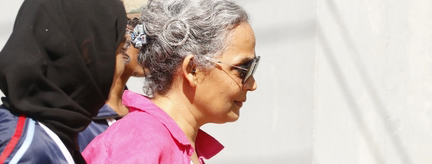 Arundhati Roy
(Pic: Shutterstock)
Arundhati Roy
(Pic: Shutterstock)
Drop charges against Indian author – IBAHRI
The International Bar Association’s Human Rights Institute (IBAHRI) has condemned a recent decision by India’s Lieutenant Governor of Delhi to bring forward a case against author Arundhati Roy for allegedly making provocative comments on Kashmir at a conference in 2010.
The case is being taken under the Indian Unlawful Activities (Prevention) Act (UAPA).
The IBAHRI said that it was concerned about the prosecution of individuals – including academics, lawyers, journalists, and activists – in India under "broad, vague and stringent anti-terrorism charges” levied under the UAPA.
“This is seemingly reflective of a broader campaign to legalise the harassment of human-rights defenders and curtail the right to freedom of opinion and expression,” the human-rights body added.
'Puzzling' prosecution
IBAHRI co-chair Anne Ramberg urged the authorities in India to drop all charges against Arundhati Roy.
She described the prosecution of the author over her comments voiced at a conference more than 14 years ago as “absurd, concerning, and deeply puzzling, particularly with such a draconian law being invoked”.
Roy – winner of the 1997 Booker prize and 2024 PEN Pinter prize – had addressed the human-rights situation in the disputed territory amid heightened tensions following mass protests that took place in response to the Indian army killing three Kashmiri civilians.
IBAHRI co-chair Mark Stephens urged the Indian authorities to consider reform of the UAPA, saying that it contradicted India’s international legal obligations.
Gazette Desk
Gazette.ie is the daily legal news site of the Law Society of Ireland